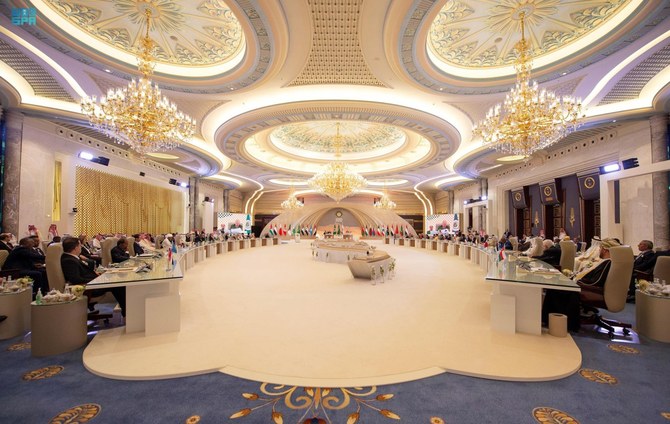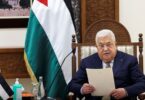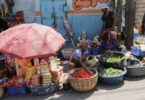Dr. Turki Faisal Al-Rasheed
The recent Arab League Summit, which was historic in bringing together the 22 member nations including Syria for the first time in more than a decade, celebrated Saudi Arabia’s presidency for the year ahead.
At the summit, member states adopted the Jeddah Declaration, which emphasized the importance of sustainable development, security, stability and peace as fundamental rights for all Arab citizens. This ambitious vision requires united, collaborative efforts from all member states. Crown Prince Mohammed bin Salman, in his opening remarks, reassured leaders of the Arab members’ commitment to peace and sustainable development, seeking to prevent the region from becoming a conflict zone.
Central to the crown prince’s argument is the potential of the Arab world, given its rich cultural heritage, human capital and natural resources, to pursue sustainable development across all sectors. Successfully achieving these goals requires embracing and implementing the four dimensions of sustainability: economic, social, environmental and human. Saudi Arabia exemplifies the dedication to these dimensions due to King Salman and the crown prince’s leadership. Their groundbreaking Vision 2030 plan is designed to reduce Saudi Arabia’s dependence on oil, while diversifying and modernizing its economy. This transformative economic and social reform blueprint connects the nation to the world.
Effective and efficient public policy is paramount in ensuring sustainability in Saudi Arabia and the GCC for the benefits of the population. Firstly, effective public policy and governance can impact the economic sustainability of Saudi Arabia and the GCC. Using the agricultural sector as a case study, governments can promote sustainable practices by investing in research and development, providing financial assistance to farmers and implementing policies that support the use of renewable resources. They can also encourage the development of local food production by providing incentives to farmers, promoting the use of local produce in restaurants and cafes by promoting the farm-to-table concept, and creating a local food procurement program that supports small-scale farmers.
These measures will not only reduce the Gulf countries’ dependence on food imports, but will also create employment opportunities in the agricultural sector, contributing to the country’s overall economic growth. An example of economic sustainability is that Saudi Arabia has successfully built the largest grain storage capacity in the Middle East, reaching 3.5 million tons in 2023, up about 40 percent compared to 2.6 million tons in 2016. Secondly, public policy plays a crucial role in ensuring social sustainability by improving access to food for all citizens. Food security can be promoted by providing food subsidies to low-income households, implementing nutrition education programs in schools and establishing food banks that distribute food to those in need. These measures will help reduce the prevalence of hunger and malnutrition, promote social inclusion and improve the overall health of the population. For example, Saudi Arabia’s Citizen Account Program is part of the government’s ongoing efforts to support eligible families and shield them from the impact of global price hikes.
Thirdly, environmental sustainability can be promoted by reducing food waste and promoting sustainable agriculture practices. Governments can encourage farmers to use organic farming practices, implement policies that reduce the use of pesticides and fertilizers and invest in technologies that reduce water usage. In 2018, for example, Saudi Arabia’s Ministry of Environment, Water and Agriculture unveiled its organic farming action plan and allocated SR750 million ($200 million) to support it. Additionally, governments can reduce food waste by implementing policies that encourage food producers to donate excess food to food banks and by incentivizing households to reduce food waste by composting and recycling.
Lastly, human capital development can be facilitated by public policy that is designed to enhance education and training access in the agricultural sector. Moreover, Saudi Arabia and the GCC can invest in vocational training programs that equip farmers with the necessary skills to adopt sustainable agriculture practices, promote research and development in the agriculture sector, and provide financial assistance to students pursuing degrees in agriculture-related fields. These measures will not only improve the overall productivity of the agriculture sector but also contribute to the development of a highly skilled workforce that can drive countries’ economic growth. The cooperation between the UN’s International Fund for Agricultural Development and the Saudi government in a project in the Jazan region, which is promoting the production of coffee and mango crops through the training of 30,000 small-scale farmers, is one good example.
Public policy and governance frameworks can help create an efficient, effective environment for sustainable agricultural development in Saudi Arabia and the Arab world. Government initiatives, such as Saudi Vision 2030, are designed to address sustainable agricultural development challenges and promote sustainable food production. Decision-making and collaboration among national ministries, regulators and research organizations are vital for policymaking and implementation, as is stakeholder engagement. In conclusion, sustainable development is pivotal for the Arab world – a region where economic, social, environmental and human capital concerns persist. Public policy and governance are crucial in promoting security, peace and stability by endorsing sustainable practices across sectors. By enacting policies that encourage sustainable food production and distribution, governments can stimulate economic growth, social inclusion, environmental conservation and human capital development. This will, in turn, contribute to the prosperity of member states, reducing the risk of conflict.







